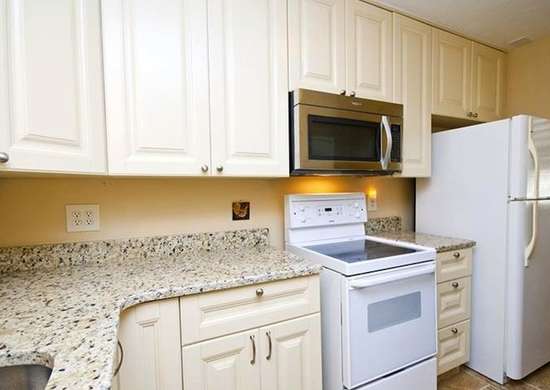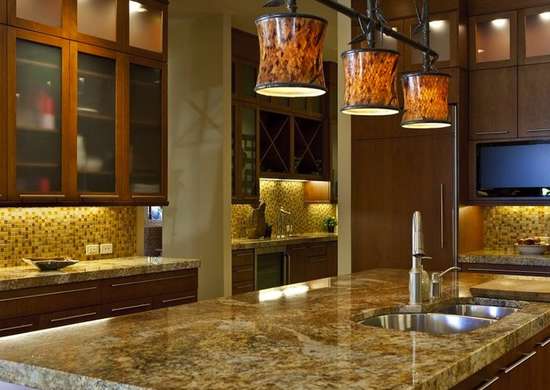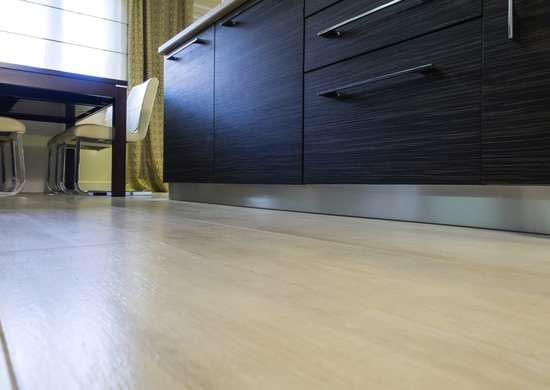THE FINAL INSPECTION WALK THROUGH WITH YOUR BUILDER
Before you go to settlement on a new home, you and your builder will “walk through” the house to conduct a final inspection. The walk-through provides an opportunity for you to learn how your new home works and to spot items that need to be corrected or adjusted.
Often, a builder will use the walk-through to inform buyers about:
The operation of the house’s components.
The buyer’s responsibilities for maintenance and upkeep.
Warranty coverage and procedures.
The larger community in which the home is located.
The Walk Through Process
When you buy a new appliance or piece of equipment, such as a washing machine, you usually have to read the instructions before you can understand how to use all of the features. With a new house, you will be receiving a stack of instruction booklets all at once. It helps if someone can take the time to show you how to operate all of the kitchen appliances, the heating and cooling systems, the water heater, and other features in the home. Such an orientation is particularly useful considering that when moving into a new home, people often are so busy that they have trouble finding time to read instruction booklets.
Learning about maintenance and upkeep responsibilities is very important. Most new homes come with a one-year warranty on workmanship and materials. However, such warranties do not cover problems that develop because of failure to perform required maintenance. Many builders provide a booklet explaining common upkeep responsibilities and how to perform them.
Should a warranted problem arise after you move in, the builder is likely to have a set of warranty service procedures to follow. Except in emergencies, requests for service should be in writing. This is not because the builder is trying to be bureaucratic. Rather, it is to ensure that everyone clearly understands the service to be performed. The person receiving a service request is not likely to be the person performing the work, and you don’t want to rely on word of mouth for transmission of your service order.

Things You’re Afraid to Tell Your Builder
We live in a time when information has all but replaced money as a person’s most valuable asset. It’s no surprise that when someone asks us for our name, our phone number or – the granddaddy of all – our email address, we protect our personal info with gusto. We want to know why they want it and what they plan to do with it if we give it to them. So it stands to reason that when a builder starts to ask you personal questions, especially related to your finances and budget, your instinct is to be guarded; play it close to the vest; take care not to over-share. But, there’s a danger in this approach that’s just as real as broadcasting your Social Security Number on social media. Not being honest with the folks who will craft your dream log home can only result in dissatisfaction. As a builder and a Log & Timber Home University professor, I’ve heard it all (or not heard it, as the case may be), and I want to help you understand why honesty and full disclosure are the best policies when dealing with your log home team. Here’s my topfive list of what people are afraid to tell their builder, and why they shouldn’t be.
How much money you have to invest in the project.
There’s an important distinction between how much money you have and how much you are willing to invest on the design, fabrication and construction of your log home. Being sincere with your builder about this is vital, because every decision from that point on will be based on that number. If you think you’re being clever by telling him you have less money to spend on your home than you actually intend, then you’re doing yourself a disservice. He’s already looking to limit your selections or even cut items from your project that could improve the quality of your home, just so you can stay within a fictitious budget. Some of these choices might include settling for fiberglass-batt insulation in the roof instead of energy-efficient (but more expensive) spray foam insulation or structural insulated panels; upgrading to an on-demand hot water system, which costs more now but saves money over time; or choosing higher-quality windows, which will boost your home’s thermal envelope, resulting in lower energy bills. A better approach is to be honest with the total amount you have to invest, broken down by how much you’d like to spend upfront and how much of that number is set aside as a contingency. For example, say your all-in number is $500,000, but you’re setting aside $75k as a sideline for unforeseen issues or other uses, like smart upgrades. Tell your builder this information. This way he can work to keep the bulk of your build to $425,000 but know that if he has a problem or cost overrun, he doesn’t have to cut from other areas to make the numbers work. This kind of transparency will go a long way to establishing a good relationship between you and your builder.
Your knowledge (or lack thereof) about construction.
A lot of people don’t want to let a builder know that they don’t have construction experience out of fear that if they’re viewed as unknowledgeable, they will be, somehow, “taken.” You shouldn’t be worried about that, but you should be concerned with being appropriately informed. If you do have construction experience, by all means share that detail with your builder. You and he will be able to speak intelligently as milestones approach and about ways to create value in the project. If you don’t know much about construction, don’t fake it. Your builder may assume you understand key components of the process and skim over them rather than bring you into the conversation, leaving you in the dark and causing you to be frustrated. Be honest and rely on his talent and expertise. That’s why you hired him in the first place.
Tasks you can tackle to save money.
Some people are afraid to tell their builder they are willing to purchase their own flooring or cabinetry for fear they’ll offend him. The truth is, with all the balls a builder has to keep in the air to complete your home on time and on budget, they welcome a client who is willing to participate in the process. The key is to keep your involvement to tasks that won’t disrupt the schedule. For instance, you may think you can save a lot of money if you sand your floors or stain your logs yourself, and maybe you can; but these types of “sweat equity” tasks rely on two key factors to keep your build running smoothly. First, you have to be available in the builder’s window for when certain tasks need to take place; and second, you have to have the time and expertise to complete the project within that window. If you can’t comply with these parameters, not only will you not save money, you actually could add to the overall cost if you throw the schedule off track and hold up the job.
When you really need to move in.
Giving a builder a false move-in date is common, and it’s counterproductive. If you have a year before you absolutely have to move into your log home, don’t tell your builder you only have five months. This will put your builder in a position where, in trying to fast-track things to meet your deadline, he may have to pull in trade contractors he hasn’t worked with before or squeeze you in between other jobs he has going on — not ideal, since you want your builder to be focused on your home. A better approach is to tell him that you’d like to be in by a certain time (August, for example) but also be honest about your drop-dead date (December). This allows your builder to properly schedule his experienced subs to work on your home.

Things to consider while selecting a home builder for your dream home
Customised homes are the trend of the town. Of course, what’s better than having your home built exactly the way you always envisioned
With more and more Australians choosing to have their abodes constructed as per their tastes, choosing the right builder can be the bridge between a dream home and a disaster (read bad quality, no after-completion support, non-availability of the builder during the construction process etc.)
Go beyond the price
Price is an important part of the equation when you decide to build a home; we all know luxury doesn’t come cheap. However, don’t let price be your only guiding factor. Rate various builders on different parameters important to you including quality, experience, efficiency, building layout, promptness and transparency in paperwork.
Ask the right questions
Before you zero in on a builder, ask the right questions to make the right choice. Here’s what you need to ask the builder for sure:
Contacts of at least 3 previous clients, for there’s nothing like word of mouth to know a builder’s repute.
Is the builder licensed and does he carry indemnity insurance? Remember, a builder must be licensed to carry out works costing over a certain amount. Do not work with unlicensed builders.
What is included in the contract? Is the cost of the concrete slab, the foundation of your home, included? If not, it can adds thousands of bucks to the final cost. What about prices for materials yet to be decided (prime cost material)?
Experience and reputation
While you may be impressed by a builder’s designs, do not ever over look the importance of experience and repute. A builder who has been in the market for few years with a good number of projects under his belt is bound to have happy customers that enabled him to continue in the market. This is exactly the kind of builder you want – one who knows the market, who has experience and is bothered about maintaining his reputation, and thus, never compromises on quality.

Self Build: The Ultimate Beginner’s Guide
Choosing to self build is a great way to create a home that is exactly tailored to your needs and can often enable you to get more bang for your buck
If you are looking to create an individual home that is tailored to your lifestyle and requirements, then you should absolutely consider the self build options available to you.
Self building can allow you to create a low-maintenance home that will change with you as your needs change. It can also give you scope to design in energy efficient features from the outset.
But it doesn’t mean that you will be the one on site digging foundation trenches or laying bricks yourself. There are numerous self build routes available — depending on your available time, budget and skillset — from building your house on a DIY basis or acting as your own project manager to a completely hands-off approach through a package supplier.
What is a Self Build?
A self build is an individual house that has been commissioned by an individual homeowner to perfectly fit their exact requirements and tastes

Things to Consider When Choosing a Custom Builder
Planning the services of a custom builder to build your dream home? When it comes to building a new home, everyone wants to construct it according to choice and needs. Home is the place where you will ideally spend a happy and peaceful life with your family. If you are looking for a custom builder to build your new home. It is crucial, that you do your research and select a builder who you can trust to guide you, design and build a beautiful home.
Consult Builders and Consider Your Needs
When looking for the services of a builder, you first have to consider your needs, but you must also plan your home according to your available budget.
Only Choose Licenced Builders
When choosing a home builder, it is imperative that you can verify the builder’s licence. You should be very strict and choose to build with only a licenced builder. All builder’s must provide insurances including builders warranty insurance as part of their permit application.
Experience is Essential
When choosing a home builder, you should always choose an experienced company. Working with a highly experienced home builder often means they will offer better architectural design options and offer a higher quality service. Experienced builders have a greater understanding of know what a new home owner needs and can build according to those needs.
Check Reviews
When selecting a home builder, you want to be able to find out the quality of that builder. It is important to check reviews and even contact past clients if possible. All you need to do is ask them if they were satisfied with the service. If they were, this is generally a pretty good indication that the builder is of a decent quality.